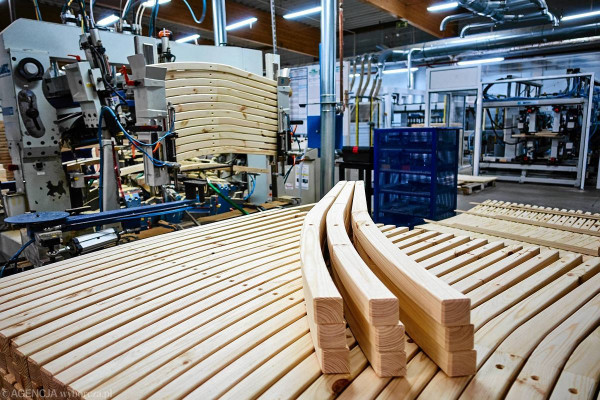Timber Cladding Specialists Introduces New Wood Cladding Manufacturing Techniques to the UK Market
Croydon, Surrey, United Kingdom, 16th May 2024 – Timber Cladding Specialists, a company known for its success in the timber industry, has revealed the launch of nTimber Cladding Specialists, a company known for its success in the timber industry, has revealed the launch of new wood cladding production methods in the UK market. These methods are ready to transform the construction sector by providing a more eco-friendly, long-lasting, and visually appealing option for building facades.

Wood cladding has historically been favoured for exterior building construction on account of its inherent aesthetic appeal, adaptability, and insulating characteristics. Although weather resistance and maintenance expenses have been potential deterrents for property owners, this material has nonetheless been considered on occasion. By integrating developments in Wood Cladding Manufacture processes, the new manufacturing techniques of Timber Cladding Specialists help to mitigate these concerns.
The application of specifically modified wood is a fundamental element of the novel methodologies. The dimensional stability and resistance to moisture, warping, and decomposition of this timber are improved through a process. Sprucing up the cladding with this modified timber guarantees its long-lasting structural integrity and aesthetic appeal in the volatile climate of the United Kingdom.
Moreover, a greater proliferation of surface modifications is facilitated by these novel manufacturing processes. A durable and aesthetically superior finish is the result of the advanced staining and painting techniques utilised in these treatments. Preventing discolouration and extending the life of the material, UV protectant coatings additionally shield the cladding from the sun’s damaging radiation.
Significant progress has been made in the Timber Cladding Installation industry with the implementation of these novel methods. The organisation is facilitating a reconsideration of the multipurpose nature of wood cladding through the provision of a more durable and aesthetically appealing alternative.
It is anticipated that numerous construction industry stakeholders will gain from the organisation’s implementation of these innovations. Property developers can benefit from the perpetual allure and minimal upkeep demands of the novel wood cladding alternatives, whereas architects and designers will be granted an expanded range of design potentialities. Ultimately, by selecting an aesthetically pleasing and environmentally friendly exterior cladding material, homeowners will be able to augment the value and appeal of their properties.
Through ongoing investigation and application of cutting-edge manufacturing methodologies, the organisation strives to provide construction products of exceptional quality that effectively address the sector’s perpetually changing demands.
About Timber Cladding Specialists
Timber Cladding Specialists are experts with extensive knowledge and experience in working with different types of timber materials like Larch, Spruce, Thermowood, and other distinct timber options.
Please contact info@timbercladdingspecialists.co.uk or visit https://timbercladdingspecialists.co.uk/ for further information or inquiries regarding press relations.
Media Contact
Organization: Timber Cladding Specialists
Contact Person: Emil Bialoblocki
Website: https://timbercladdingspecialists.co.uk/
Email: ebialoblocki@googlemail.com
Contact Number: +447584754915
Address: 1 Lion Road CRO 2QB
City: Croydon
State: Surrey
Country: United Kingdom
Release Id: 16052412119
The post Timber Cladding Specialists Introduces New Wood Cladding Manufacturing Techniques to the UK Market appeared first on King NewsWire. It is provided by a third-party content provider. King Newswire makes no warranties or representations in connection with it.
Disclaimer: The views, suggestions, and opinions expressed here are the sole responsibility of the experts. No Funds Pulse journalist was involved in the writing and production of this article.
